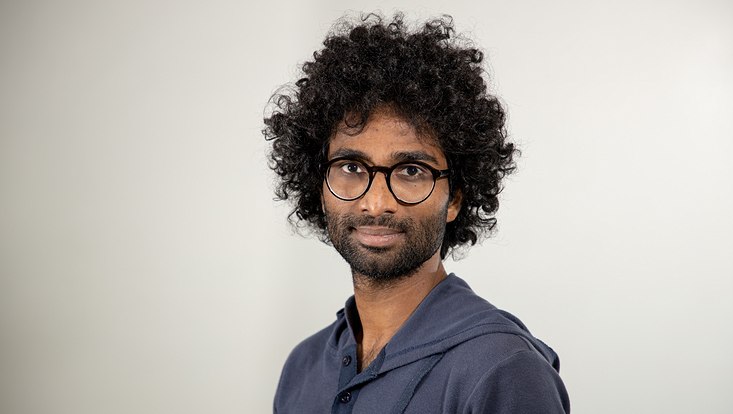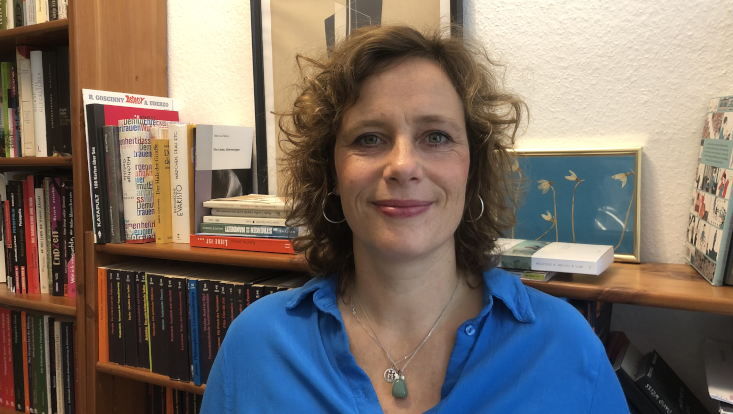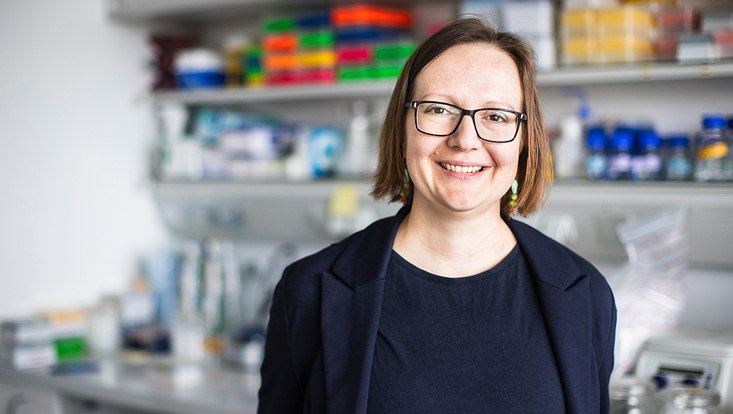Welcome aboard!“Our Entire World Is A Three-dimensional Space”Prof. Dr. Chinmoy Bhattacharjee strengthens the Department of Mathematics
12 January 2024, by Heiko Fuchs

Photo: privat
Every year, numerous new researchers join the Universität Hamburg. In this series, we introduce them and their fields of research. This time: mathematician Prof. Dr. Chinmoy Bhattacharjee.
Prof. Dr. Chinmoy Bhattacharjee moved to Hamburg from the University of Luxembourg in September and took up the W1 professorship for "Mathematics, in particular Mathematical Stochastics" at the Department of Mathematics in the Faculty of Mathematics, Informatics and Natural Sciences.
Mr. Bhattacharjee, what topics do you focus on?
In general, my research is in Probability theory, which is a field of mathematics that deals with random events and their probabilities. These random events and processes play an important role everywhere in mathematics, computer science and the natural sciences. Within probability theory, I am interested in the study of objects that are more geometric in nature. The relevant field is therefore called Stochastic Geometry.
Do you mean random geometric shapes?
I am concerned with the study of random objects in a geometric space, such as random mosaics, germ grain models and random graphs. An example of such a model is Percolation. Consider the two-dimensional plane and divide it into cells in some random manner; this forms a tessellation of the whole plane. If we then randomly select some of these cells and press them down in a third dimension, we have some of these cells at the bottom and some at the top. We can then fill water into this structure via a cell that is pressed down on one of the sides, and examine whether this water can flow to the opposite side. That means we examine whether the cells at the bottom connects the two opposite sides. In other words, we ask whether water can percolate through this structure. This type of models has many applications, for example in studying the spread of epidemics or fighting wildfires.
Are there other areas of research that you will be working on?
One important area that I would like to investigate in the next few years is Superconcentration. In general, you can’t determine the exact value of random variables, but typically they are concentrated around a certain mean value. A random variable is said to be Superconcentrated if it is unusually well-concentrated around this mean value. My goal would be to find some general criteria for Superconcentration for random variables in a specific geometric setting. I have recently received a DFG grant under the priority program “Random Geometric Systems” to investigate this particular question.
You briefly mentioned the application aspect, where else can your research be used?
We all live in a geometric space; our entire world is a three-dimensional space. Therefore, all these models of stochastic geometry have many real-world applications. For example, you can model social networks, telecommunication networks or even the world wide web by some of these models. They have found applications in ecological systems, to model bacteria growth in a certain environment, through to astronomy, to study the formation of galaxies or star formation in certain regions of space, to name a few. All these completely different areas can be studied by modelling them according to different random geometric systems.
What do you need for your research?
My research is fairly theoretical, even though there are many applications of the models I study in the real-world. For my work, I mostly just need a pen and a paper, and of course a computer, to do some simulations, and most importantly write down my results.
Why did you choose the Universität Hamburg?
Hamburg is a great place for me. It's a little further north and I was a bit worried about the weather at first, but I really like it here now. The Department of Mathematics is really great, and there are many colleagues here that I can work with. In addition, I have ongoing collaborations with some mathematicians from the Technical University Hamburg as well. So, there is a well-established community here in which I can find many opportunities for collaboration, and thus further establish myself as a scientist.
Are there other cooperation partners?
I would generally like to expand my research to more applied areas in the near future. I can definitely imagine further collaborations, for example with the Department of Informatics.
What are you planning for your lectures?
I am very passionate about teaching and It's one of the things I really enjoy. Currently I am teaching a Master course on Random Graphs, and next semester, I will be teaching a course on Stein’s method, topics that have a lot to do with my own research. I really find my class this semester wonderful! I hope that I can motivate some of my students to pursue mathematical research, in particular, in probability. Of course, I would be happy if some of them would eventually like to do a PhD in my field.


